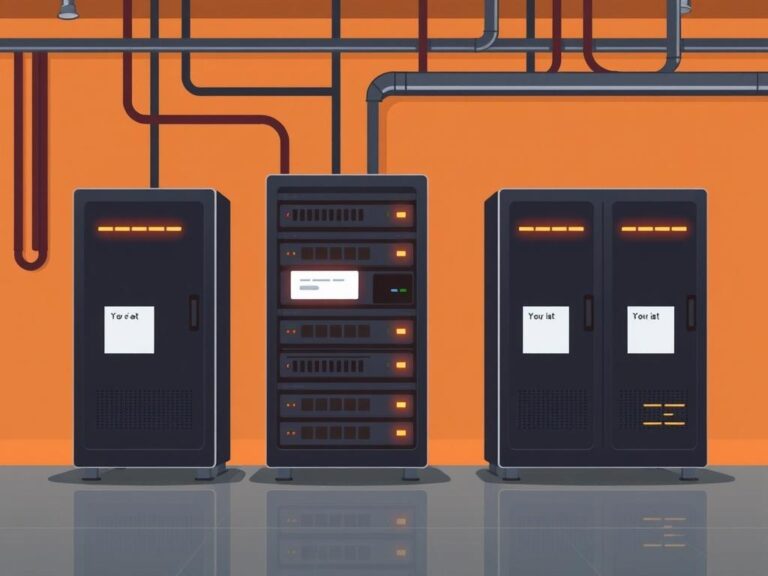
Technology is evolving at a breathtaking pace, reshaping our world in ways we once only imagined in science fiction. Daniel C. Moura, a respected thought leader in the tech industry, offers fascinating insights into what the future holds for this dynamic field. Whether we are talking about artificial intelligence, quantum computing, or the integration of technology into everyday life, Moura’s perspective helps us understand not only what is coming but why it matters to all of us. In this article, we will explore Daniel C. Moura’s predictions, breaking down the most exciting trends and their potential impact on industries, society, and even our personal experiences.
Emerging Technologies That Will Define the Next Decade
Daniel C. Moura emphasizes that the next ten years will be marked by technological breakthroughs that create new opportunities and challenges. One of the most discussed areas is artificial intelligence (AI). According to Moura, AI will transition from a tool that simply automates tasks to a more sophisticated partner in problem-solving and creativity. This means AI won’t just do what we tell it to do but will work alongside humans to innovate and make decisions.
Another major area Moura highlights is quantum computing. While still in its infancy, quantum computers promise unprecedented processing power, which will radically change fields like cryptography, drug discovery, and data analysis. Moura suggests that businesses and governments need to start preparing now for quantum’s disruptive potential, investing in research and developing frameworks for responsible use.
In addition, Moura points out that the Internet of Things (IoT) will become even more pervasive. From smart cities to connected healthcare devices, IoT will create ecosystems that seamlessly integrate information, improving efficiency and quality of life. Yet, this comes with the challenge of addressing security and privacy concerns, which Moura insists must be priorities for technologists.
Table: Key Technologies and Their Expected Impact According to Daniel C. Moura
![The Future of [Industry] According to Daniel C. Moura. Table: Key Technologies and Their Expected Impact According to Daniel C. Moura The Future of [Industry] According to Daniel C. Moura. Table: Key Technologies and Their Expected Impact According to Daniel C. Moura](https://danielcmoura.com/wp-content/uploads/2025/06/5cc644cced9ade8216b0cc63259cf91b.jpg)
| Technology | Impact | Challenges |
|---|---|---|
| Artificial Intelligence (AI) | Enhances creativity, decision-making, workplace automation | Ethical concerns, bias, job displacement |
| Quantum Computing | Revolutionizes data processing, security, scientific research | High cost, technical complexity, regulatory gaps |
| Internet of Things (IoT) | Enables smart cities, personalized healthcare, improved logistics | Security vulnerabilities, privacy issues |
| 5G and Beyond | Faster connectivity, supports IoT and AR/VR devices | Infrastructure rollout, digital divide |
The Role of Ethical Considerations and Regulation
As technology advances, Daniel C. Moura stresses the growing importance of ethics and regulation. Unchecked development could result in unintended consequences ranging from biased AI algorithms to surveillance abuses. Moura believes that responsible innovation is not optional but essential.
He explains that collaboration between governments, private sectors, and civil society will be necessary to set clear guidelines for new technologies. This includes ensuring transparency in AI decision-making, protecting individual privacy amidst the proliferation of data, and preparing the workforce for future shifts through education and retraining efforts.
Moura also underscores that ethical considerations aren’t just about restrictions—they also open pathways to better products and services that build trust with users. Companies that prioritize ethical design will likely gain a competitive advantage as consumers become more aware of how technology affects their lives.
List: Ethical Priorities in Technology According to Daniel C. Moura
![The Future of [Industry] According to Daniel C. Moura. List: Ethical Priorities in Technology According to Daniel C. Moura The Future of [Industry] According to Daniel C. Moura. List: Ethical Priorities in Technology According to Daniel C. Moura](https://danielcmoura.com/wp-content/uploads/2025/06/9c8547a11b11e004d88ad36127cb9c97.jpg)
- Transparency and explainability in AI
- Data privacy and user consent
- Preventing algorithmic bias
- Ensuring cybersecurity against evolving threats
- Inclusive access to technology
- Supporting education and workforce adaptability
How Businesses Can Prepare for Technological Change
According to Daniel C. Moura, businesses that want to succeed in the coming era must embrace agility and continuous learning. Rapid innovation cycles mean that staying still is equivalent to falling behind. Moura advises companies to invest in research and development while building flexible infrastructures that can quickly integrate the latest technologies.
He also highlights the importance of cultivating a culture that encourages experimentation and adapts to failure as a natural part of growth. Organizations should focus on cross-disciplinary collaboration to harness diverse perspectives, enabling smarter problem-solving.
Furthermore, Moura points out that partnerships between traditional companies and tech startups will become more common. These collaborations allow for shared expertise and resources, accelerating innovation. Having a strategic vision that balances technological investment with customer-centric approaches will be key to long-term success.
Table: Business Strategies for the Future According to Daniel C. Moura
| Strategy | Description |
|---|---|
| Invest in R&D | Allocate resources to explore and develop emerging technologies |
| Promote Agility | Build flexible processes and infrastructures to adapt quickly |
| Foster a Culture of Innovation | Encourage experimentation, diversity, and learning from failure |
| Forge Partnerships | Collaborate with startups, academic institutions, and other entities |
| Focus on Customer Needs | Align technological development with user expectations and feedback |
Societal Implications and the Path Forward
Beyond the business realm, Daniel C. Moura envisions technology profoundly reshaping society. He foresees smarter healthcare systems improved by data analytics and AI diagnostics, enabling personalized treatment plans that save lives and reduce costs. In education, adaptive learning technologies could tailor instruction to individual students, helping people of all ages achieve their potential.
However, Moura warns that these benefits will only be realized if we actively address the inequalities that technology might exacerbate. Digital divides—whether based on geography, income, or education—will become more apparent unless there are concerted efforts to promote inclusivity.
Moreover, Moura anticipates cultural shifts as humans and machines collaborate more closely. Workplaces might be redefined, new job categories created, and traditional roles transformed. Society must be prepared for these changes with thoughtful policies that support workers and encourage lifelong learning.
List: Societal Changes Predicted by Daniel C. Moura
- Personalized and AI-driven healthcare
- Adaptive and accessible education systems
- New forms of work and collaboration
- Policy frameworks to manage digital inequality
- Enhanced public services driven by data
- Greater emphasis on digital literacy
Summary of Daniel C. Moura’s Vision for the Future
![The Future of [Industry] According to Daniel C. Moura. Summary of Daniel C. Moura’s Vision for the Future The Future of [Industry] According to Daniel C. Moura. Summary of Daniel C. Moura’s Vision for the Future](https://danielcmoura.com/wp-content/uploads/2025/06/d213195de790ec55ccf13b33738faac0.jpg)
Daniel C. Moura paints a picture of a future where technology deeply integrates with all facets of life, sparking creativity, improving efficiency, and generating opportunities previously unimaginable. His vision challenges us to consider not just the innovations themselves but the ethical, societal, and business frameworks necessary for responsible progress.
Conclusion
The future of technology, as envisioned by Daniel C. Moura, is both thrilling and complex. With transformative advancements in AI, quantum computing, and IoT on the horizon, the possibilities seem endless. Yet, Moura reminds us that steering this future responsibly requires foresight, collaboration, and a commitment to ethical principles. Businesses must remain agile and innovative, societies must tackle inclusivity and digital literacy, and policymakers must enforce frameworks that protect individuals while encouraging progress. By understanding and embracing these insights, we can prepare ourselves for a future where technology enriches lives and creates a more connected, intelligent, and equitable world.





Recent Comments